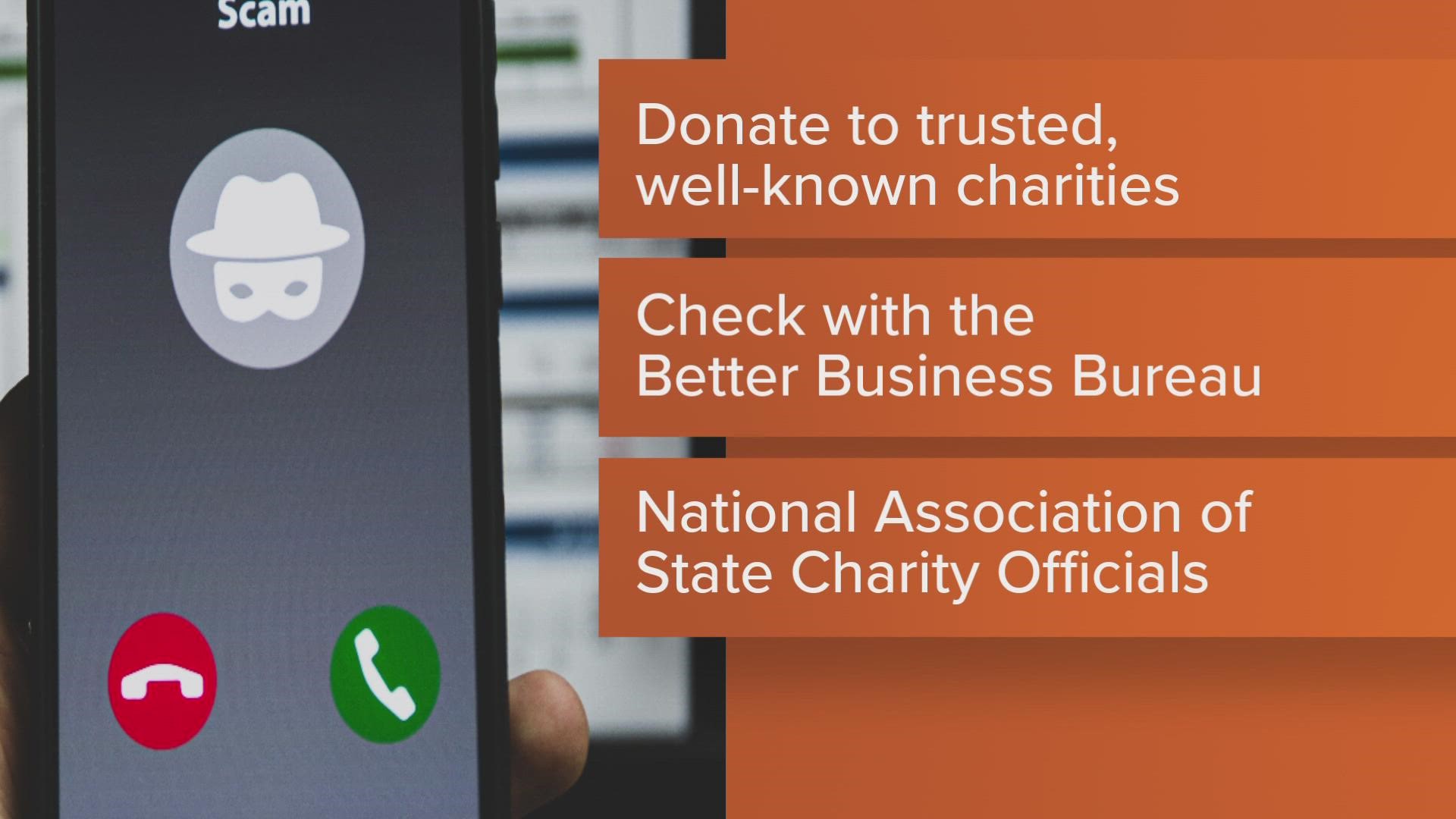KNOXVILLE, Tenn — East Tennesseans are stepping up to help residents in Florida as Tropical Storm Ian barrels across the state.
But if you want to help through donations, be careful.
There will inevitably be scammers creating fake charities to take advantage of your generosity during natural disasters, according to the Federal Communications Commission.
Here's what you need to know.
Only donate to trusted, well-known charities.
If you have your doubts about whether a charity is legit—you can always check with the Better Business Bureau, Charity Navigator, Charity Watch or GuideStar.
You can also check with the national association of state charity officials about whether charities have to be registered in your state and if the charity contacting you is on file.
Verify all phone numbers.
If you need to contact a charity by phone, check the charity's official website to see if the number you have is legitimate.
If you are using text-to-donate, check with the charity first before donating.
Don't open suspicious emails.
If you get a suspicious email requesting donations or other assistance, don't click on any links or open any attachments.
Scammers regularly use email for phishing attacks and to spread malware.
When it comes to social media posts, verify the information.
Double-check any solicitation for charitable donations before you give.
Crowd-funding websites often host individual requests for help but they are not always vetted by the site or other sources.
If you suspect fraud, call the FEMA disaster fraud hotline toll-free at 1-866-720-5721.
You can also report other fraudulent activities during or following a natural disaster at 1-866-720-5721 or disaster@leo.gov.
You can also file a complaint with the FCC about phone scams, or with the FTC about fraud.

